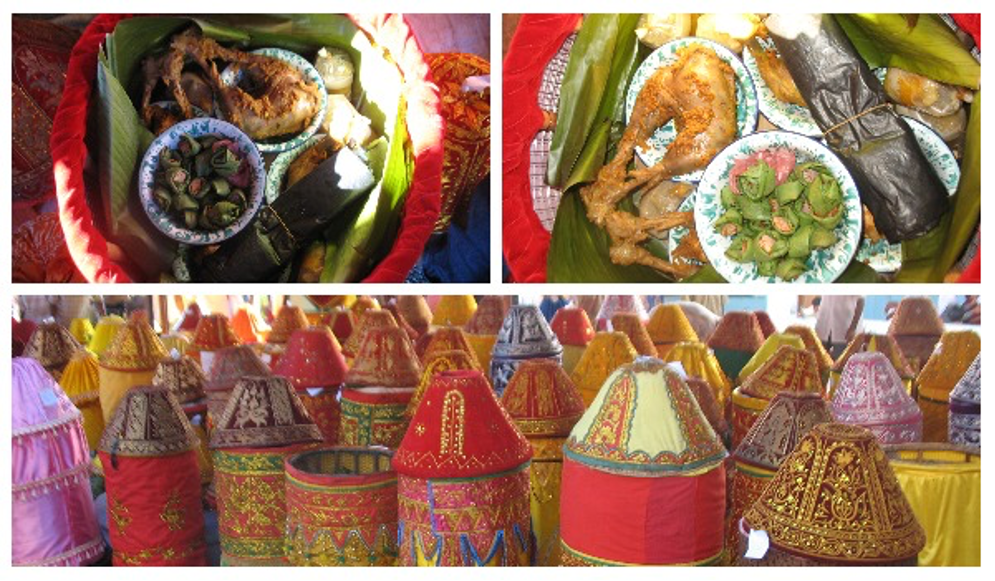Gift-giving unwrapped with a UM-Flint anthropologist

In theory, gift-giving seems like a simple way to spread holiday cheer: You think of the important people in your life, shop for what they would like, and present the perfect item to them, neatly wrapped. But as you probably know, things get much more difficult in the real world. Between all the lists, shopping, and wrapping, you'd be forgiven if you haven't taken time to examine the finer implications of gift-giving in human society.
Luckily, we have a professor for that.
Assistant Professor of Anthropology Daniel Birchok has taught courses such as Gifts, Goods, and Graft: The Anthropology of Value and Exchange. Drawing on both anthropological theory and his own experiences working in the field, Birchok challenges us to consider gift-giving in a much more nuanced manner than the holidays usually allow.
Gifts and power

While working in rural Aceh, Indonesia, Birchok was able to experience gift-giving in the form of feasts during Musim Maulid—the 3-month period of celebration for the Prophet Mohammed's birthday. Village leaders would determine how much food women in the community could produce and then decide how many other villages they could invite.
Birchok saw clear power dynamics develop from this feasting season. Some villages are wealthy and others are poor, with poor villages being unable to reciprocate. Even though we don't like to think this way, gifts are inexorably connected with power.
"Native American communities in the Pacific Northwest held festivals called potlach. These were large gatherings where powerful people tried to give away as much as they could," Birchok explains. "By giving away so much, leaders could prove their prowess and kept everyone else in debt to them." Birchok goes on to say that this tradition was far from the warm and fuzzy idea of gift-giving we tend to have now. These festivals were often described as "battlegrounds" where expressions like "I'm going to flatten you with gifts" were used.
Gifts and connection
Of course, not all gift-giving has such political underpinnings. At its core, gift-giving is about connection and relationship building. Birchok contrasts the social obligations that come with receiving a gift versus purchasing an item at a store.
"When you go to the store and pay for something, the expectation is, as soon as you turn the money over and you get what you want, that relationship is over. Whereas when you receive a gift, there's an expectation that you'll return that favor, just maybe not right away. It's an ongoing relationship that you build," Birchok says.
This fundamental difference in relationships can help explain the origins of money in human society, according to Birchok. The development of currency comes from our need to have relationships that we can cut off. Paying the cashier and taking your item is the end of that relationship; just think how odd it would be if you ran into that cashier a few days later and they talked about how you owe them for that gift they gave you.
Gifts are a human constant
No matter the particular human culture or its point in history, gift-giving has always been a central part of the human experience. Even the idea of a gifting season (like the one we are now entering) has existed for millennia. Growing seasons have been a fixture of humanity for all of recorded history, and people would exchange gifts once the harvest was complete.
If you're interested in learning more about gifting and exchange in human culture, consider taking courses in Anthropology at UM-Flint.
Related Posts
No related photos.
Logan McGrady
Logan McGrady is the marketing & digital communication manager for the Office of Marketing and Communication.